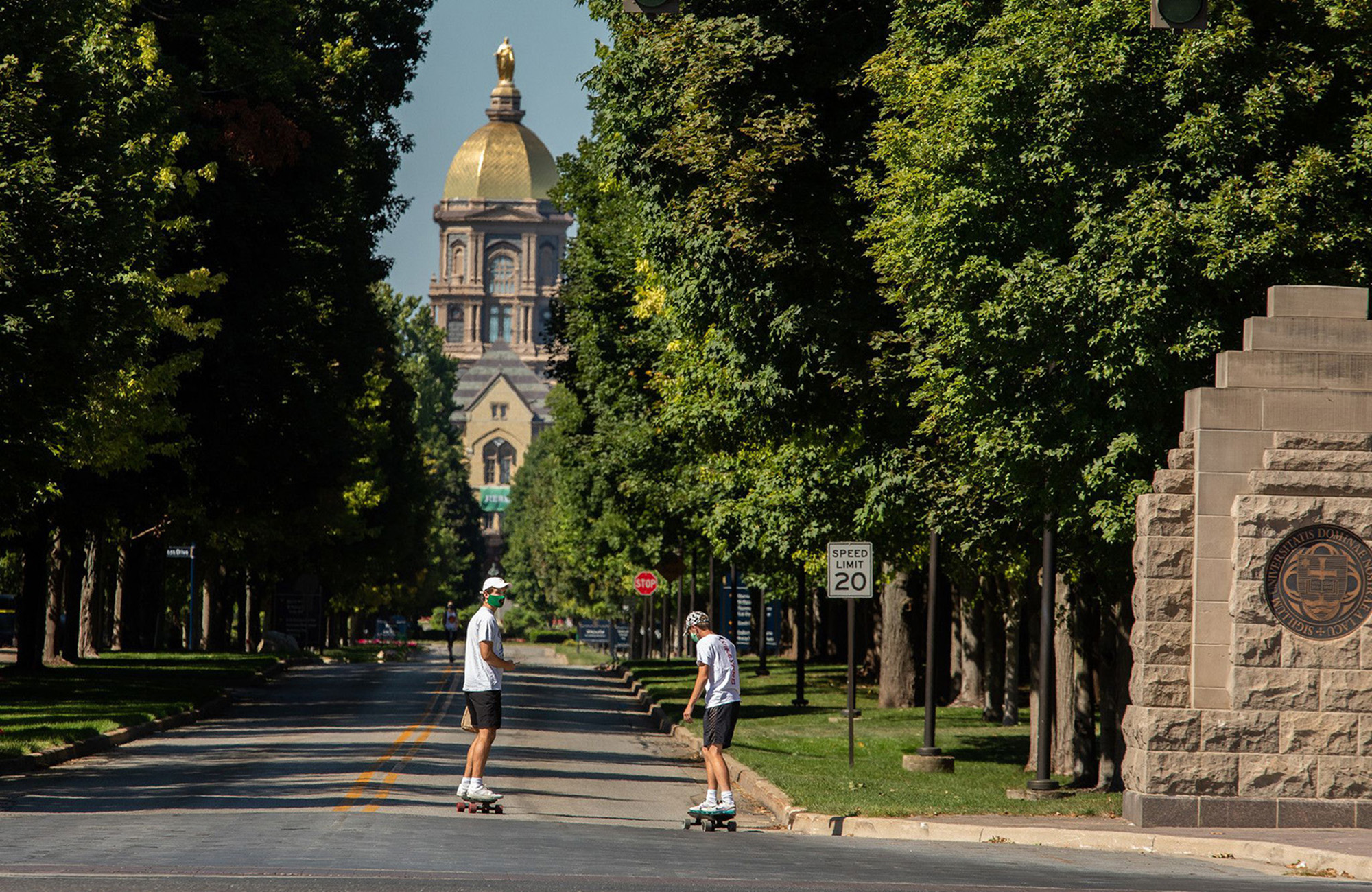Notre Dame sounds alarm, limits gatherings after spike in COVID cases tied to parties
The increase was tied to large parties last weekend, officials said.
Officials at the University of Notre Dame are sounding the alarm -- and limiting the size of gatherings -- after a recent spike in COVID-19 cases tied to parties.
The South Bend, Indiana, school saw a "significant increase" in positive cases this week, Rev. John Jenkins, the university's president, said in a video address Thursday, "mostly due to social activity over the past weekend."
After averaging fewer than five new cases for the past week as of Oct. 7, the university reported 31 new cases a week later, on Oct. 14, prompting Jenkins' address. As of Friday, the seven-day average for new cases was 11.

School officials noted a "concerning" trend in positive cases as well as the number of close contacts identified through contact tracing this week. In a letter to students on Thursday, Vice President for Student Affairs Erin Hoffmann Harding and Vice President for Campus Safety and University Operations Mike Seamon said that the "number of close contacts for each positive case has also increased substantially, with as many as 10 to 15 close contacts needing to quarantine."
They also noted that many of these cases were tied to "larger parties and gatherings last weekend."
Notre Dame played Florida State University at home a week ago. The university didn't find any cases in the spike tied to attending the game, though it did off campus, officials told the South Bend Tribune.
The spike followed relaxing rules around the size of informal gatherings, Harding and Seamon noted. To combat the recent increase in positive cases and the number of contacts needing to quarantine, the school is now restricting informal gatherings from groups of 20 to 10.
The officials also urged students to wear masks, socially distance, wash their hands regularly, participate in surveillance COVID-19 testing and avoid bars and restaurants where social distancing rules are ignored. "The St. Joseph County Health Department is concerned about local trends, and they have increased their enforcement efforts accordingly," they said.
As of Saturday, the seven-day positivity rate was 1.6%, after jumping to 4.1% on Wednesday. It's a far cry from when the school saw double-digit positivity rates and dozens of new cases each day amid off-campus outbreaks in August, prompting a two-week campus lockdown and increased disciplinary action.
It appears the school doesn't want to take any chances this time, with the end of the fall semester a little more than a month away.
"I understand the weariness we all feel after a long semester under COVID restrictions, and this can lead to laxity as we socialize. Yet so many have worked so hard to bring us to this point," Jenkins said in his video address. "We have come a long way, and we have just weeks to go. Let's finish strong."
Jenkins added that "if you made mistakes, as I certainly have, let us own the mistakes and resolve to do better going forward" -- a nod to the criticism he recently faced over his behavior during a White House event last month.
Jenkins was seen in photos and videos not wearing a mask or social distancing while attending the SCOTUS nomination ceremony in the Rose Garden on Sept. 26. He issued an apology to the Notre Dame community for his behavior, and the university's student senate passed a resolution last week "formally disapproving" of Jenkins' "violations of university" health policy.
Jenkins subsequently was one of over a dozen attendees to test positive for COVID-19, along with President Donald Trump, first lady Melania Trump, press secretary Kayleigh McEnany, former New Jersey Gov. Chris Christie and others. He has since been symptom-free and ended his isolation, the university announced earlier this week.




